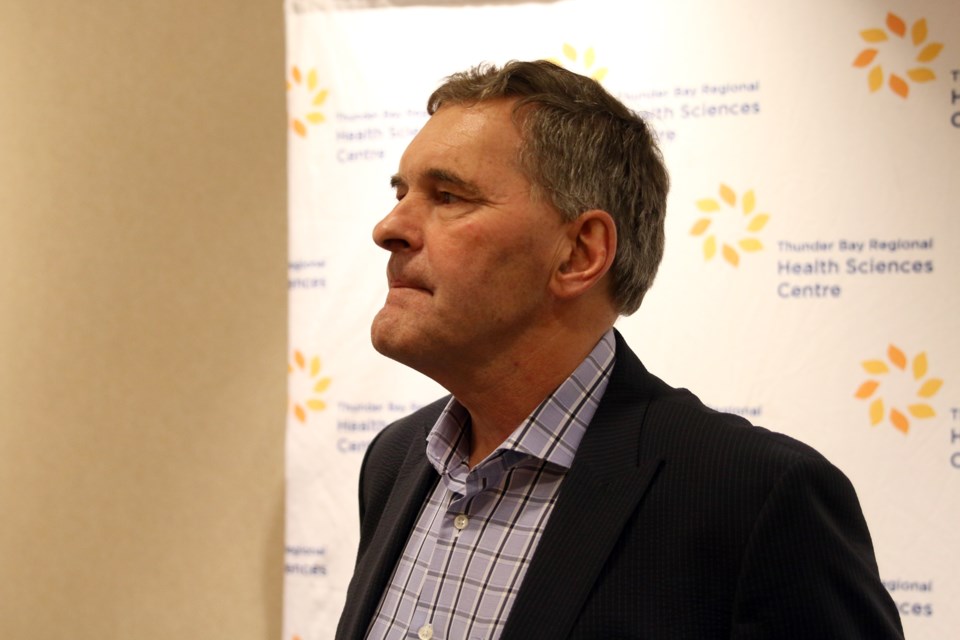THUNDER BAY – Growing numbers of staff at the Thunder Bay Regional Health Sciences Centre are self-isolating due to contact with possible COVID-19 cases. It’s an issue the hospital says could largely be solved by processing test results more quickly.
As of Monday, more than 50 hospital staff had been sent home because they had come in contact with a potential COVID-19 case without wearing full personal protective equipment (PPE). That number has grown significantly in recent days - as of Sunday, it stood just above 30.
Dr. Stewart Kennedy, who heads the hospital’s COVID-19 response team, said affected staff are primarily nurses and support staff from inpatient units who came in contact with patients not initially suspected to have the virus, but who may later have developed common symptoms or learned they had contact with a confirmed case.
In those cases, staff who had close contact with the patient without full PPE are required to self-isolate until test results for the patient are returned.
Hospital staff working outside hospital “hot zones” intended to deal with COVID-19 patients do not regularly don full PPE. Kennedy says that’s a matter of rationing limited supplies of crucial protective equipment.
“It’d be lovely to have enough supplies to have all our staff wear PPE the whole time,” he said. “But when they come in contact with patients, they also then have to change, and they’d be going through multiple uses of PPE stores all the time. We have to preserve our supply.
“To have the entire hospital wear PPE… we’d run through our supplies in probably a couple of days.”
So far, Kennedy said, the number of staff missing work to self-isolate had not affected the hospital's ability to operate. But he said it's a growing concern that highlights the need for the hospital to process COVID-19 test results in-house. Results are currently sent to a Toronto lab, leaving patients and staff with days of uncertainty.
“That’s why it’s so important to do in-house testing, so we’d have an answer back in two to three hours," Kennedy said. "Then the staff wouldn’t have to go home and spend three or four days without knowing the results.”
While the hospital has acquired the necessary equipment, shortages of reagents needed to process tests have held them back. Kennedy said provincial and federal authorities understand the importance of securing the material for local testing, but are scrambling to secure supply.
“They’re working to prioritize this, but you know, there is a world-wide shortage,” he said.
This article has been updated to reflect new information on the number of staff members off work due to contact with a possible COVID-19 case.
